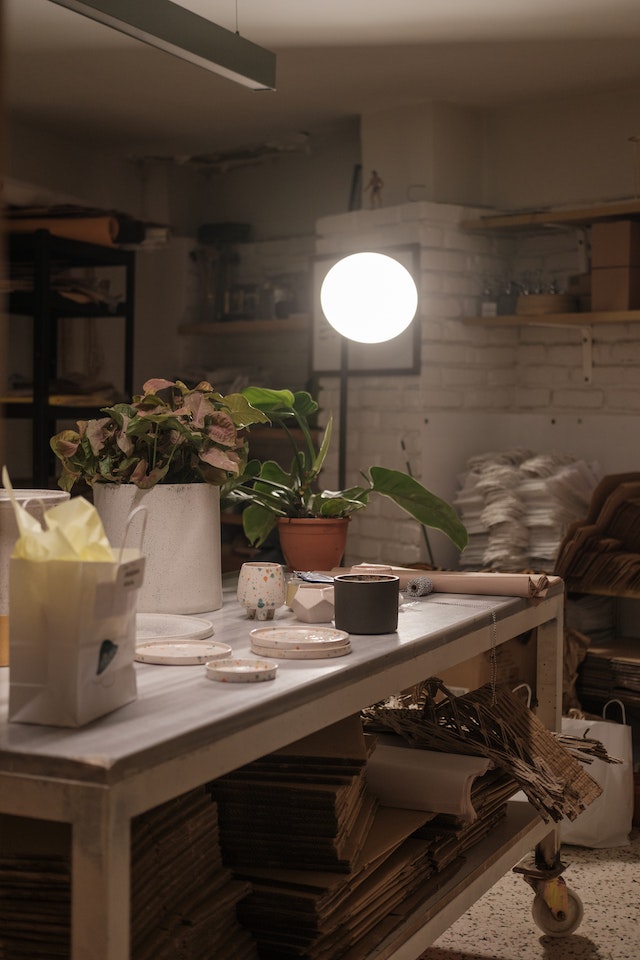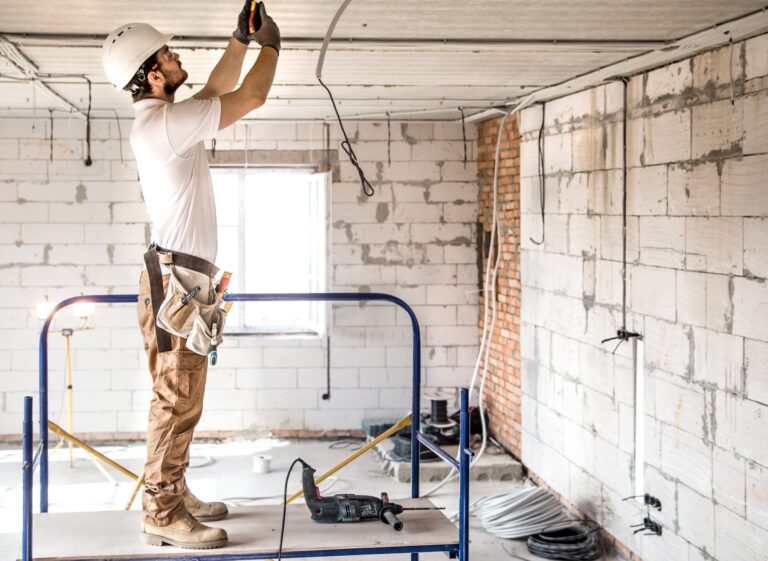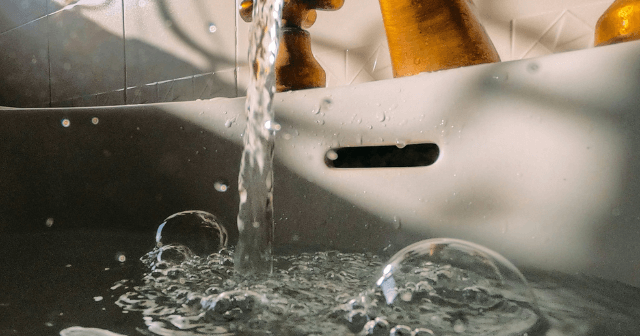 Imagine you’re sitting in your home watching TV when all of a sudden you look up and notice something strange. There is a discoloration on the ceiling in the corner of the room, right below where the bathroom is. It is a water stain.
Imagine you’re sitting in your home watching TV when all of a sudden you look up and notice something strange. There is a discoloration on the ceiling in the corner of the room, right below where the bathroom is. It is a water stain.
Maybe you have had this experience or something like it. You discovered that your home has water damage. This can be one of the worst feelings for a homeowner or commercial property owner, especially since water damage can have a devastating effect on building materials, air quality, and possessions that you care about.
Causes of Water Damage
This type of damage occurs when standing water collects where it should not. It could also be the result of moving water becoming uncontained. Here are a few common causes of water damage in your home.
Burst Pipe
If part of the plumbing apparatus in your home bursts, it can spray lots of water into areas where it should not be. This can cause a flooded basement, water stains on walls or ceilings, mold growth in dark areas, and significant damage to your home. If you live in a location that experiences cold winters, burst pipes are a common side effect of extreme temperatures.
Faulty Appliances
From washing machines to dishwashers, to water heaters, malfunctioning appliances can be another source of water damage. When these machines leak or break, water can spill into parts of the house that should remain dry. This can cause structural damage if porous materials used for building are affected, as well as safety hazards if electrical equipment is nearby.
Natural Disasters
Some water damage could be the result of the forces of nature. Flood waters could put your basement underwater or ruin the foundation of your home. Heavy rains combined with a leaking roof or compromised siding could result in additional water accumulating inside. Flood damage can be detrimental and lead to damaged materials in your home.
Sewage Backup
One of the worst types of water damage occurs when sewer lines back up. This water is extremely contaminated and could pose health risks to everyone in the house, (often called “black water”. There is also a high chance of mold and mildew developing in the aftermath of this type of incident. You should wear protective clothing when cleaning up highly contaminated water. Water that is only mildly contaminated is known as gray water, whereas cleaner water is called white water.
There are other forms of water damage, but these are the most common. Now the question is, how do you deal with restoring your property?
Water Damage Restoration
When you are facing water damage after a burst pipe, broken appliance, natural disaster, sewage backup, or another incident, you need to know how to restore your home to its original state. Here are some tips for water damage cleanup, and remember to act quickly when facing this problem.
Locate All Moisture
Removing as much water as possible is your priority when taking on your project. To start, you will need to identify the extent of the damage. Has water collected near electrical wiring or electrical appliances? Then you will need to be extra careful to avoid a shock and the resulting health problems. You can locate water using infrared technology and moisture meters that can locate all pockets of wetness in the building.
Extract Standing Water
To extract the water, you can use sump pumps, a wet-dry vacuum, a shop vac, large fans, air movers, dehumidifiers, and anything you can to circulate air. Opening windows and doors will also be helpful. Extraction is the most important part of the process because ignoring the problem could result in compromised structural integrity, and mold spores spreading.
Implement Thorough Drying Techniques
The keys to successful water damage repair are extraction, evaporation, and drying. You can remove standing water with pumps or vacuums. Then, you want the remaining wet materials that cannot be removed to have the water evaporated into a gaseous state. This can happen with powerful fans.
To speed up the drying process in the affected areas, you should remove all other wet items and begin drying them outside. This will lower the amount of time it takes the room to dry out. Wait until the room doesn’t feel wet anymore before moving to the next step.
Cleaning Up Afterwards
With all of the moisture removed, it is time to clean up. There could be musty odors left behind, in which case you may have to find mold to remove. Water damage often leaves behind a mess, so you will need to disinfect the affected area to make sure it is safe to use. Remember to clean those hard-to-reach areas as well, since dark, damp environments can be breeding grounds for mold spores, which can cause respiratory problems.
Sound Like Too Much Work? Hire a Water Damage Restoration Company
When the water damage in your home is severe, you should consider working with a Portland water damage restoration company to lend professional help to your project. A team of professionals can produce far better work than you can on your own and provides many benefits.
Mold Removal Services to Prevent Future Mold Growth
Mold can negatively affect the air quality in your home, and when an incident leaves water damage in the building, the potential for mold and mildew is very high. Restoration specialists can ensure that this hazard is removed and prevented from spreading in your home.
High-Powered Equipment and Expertise
These professionals know what they are doing and they have the tools to do it. Rather than relying on your knowledge and limited equipment, let a restoration company use its resources to return your property to its original state.
Preventing More Damage
If the issue is not addressed immediately or the affected areas are not allowed to dry completely, further damage can occur in the future which will cost you thousands of dollars. A thorough cleanup and water damage restoration process will ensure that your home is protected from major issues going forward related to this incident.
Water Damage Can Wreak Havoc on Your Home
If you allow water damage to remain for an extended period, you can kiss your savings goodbye. Wet areas can spread moisture throughout your home and force you to replace drywall, wood furniture, ceramic tile/laminate floors, or even key structural materials.
It is better to take the proper precautions and fix the damage as quickly as possible. This will protect your home or your commercial property from long-term damage that will hit your wallet even harder. Call a professional right away when you experience a water damage incident.



